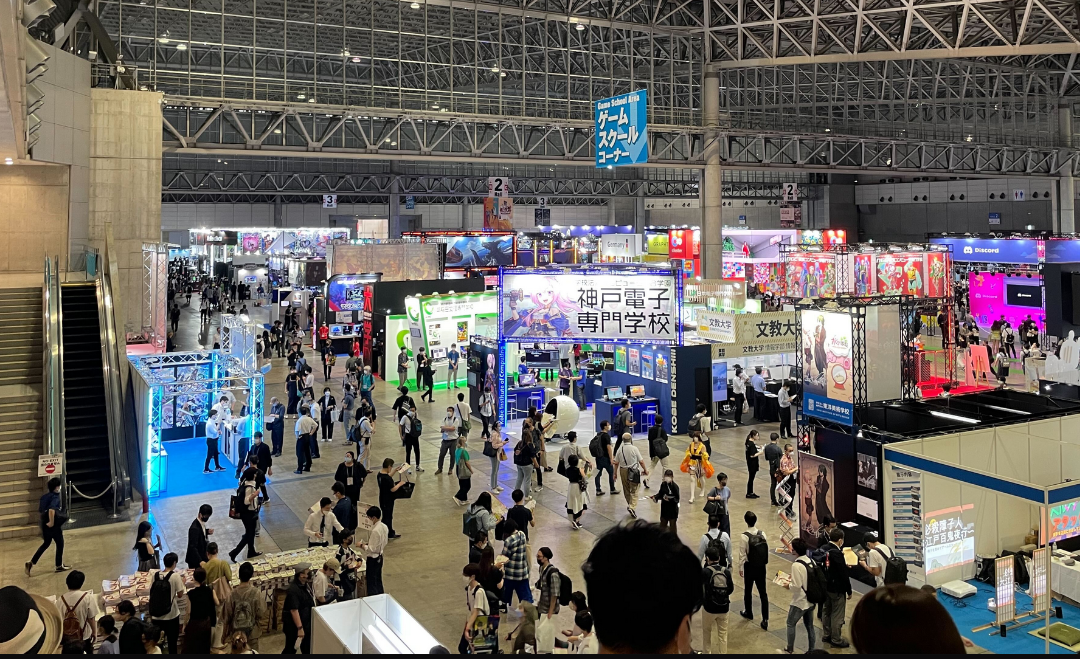Blockchain-based games need to spend more time actually being “fun to play” rather than developing flashy tokenomics, an Animoca Brand-owned blockchain game developer told Cointelegraph.
Speaking to Cointelegraph on the first day of the 2022 Tokyo Games Show, Luke Sillay, the lead community manager at Australia-based game developer Blowfish Studios said that far too many blockchain games have put the focus on in-game rewards and tokenomics rather than gameplay.
“You can see from a lot of other blockchain games that they’re not actually fun to play. Like, yes, you have potential to earn quite a significant amount of token and you get a good return on investment most of the time. But generally speaking, they’re not that fun, right?”
Sillay said that generally, many of these games have simplistic game modes that are built around earning, rather than pure enjoyment, and have therefore failed to grasp the attention of traditional gamers thus far.
According to data from DappRadar, the most popular blockchain games in terms of active users over the past 30 days are Gameta, Alien Worlds, and Solitaire Blitz with one million, 814,000, and 652,760 users, respectively. The figures show significant interest in the games but pale in comparison to popular traditional games.
Sillay said games should primarily be “fun to play” and attractive to look at, stating:
“Our kind of thought is that if it’s fun to play and it’s attractive to look at, people want to play it.”
Blowfish Studios is an Australian video game developer that was acquired by Animoca Brands for around $6.6 million in July 2021. As part of the acquisition, Animoca has guided Blowfish from Web2 to Web3 gaming, with NFT game Phantom Galaxies (currently in Beta) being the company’s main focus.
Questioned on the type of games that would work best with NFTs and P2E integration, Sillay highlighted free-to-play giants such as Riot’s League of Legends and Epic Games’ Fortnite which already have internal markets built into them.
He noted that these types of games generally attract die-hard fans because they are fun to play, and continually update and improve the experience over time. This leads to people who play for multiple years and happily spend money to purchase products such as new character skins.
“Say like League of Legends and Fortnite with your skins and stuff like that […] If you can play and enjoy something for a really long time, you know, and then you drop it, in a year or two in, you don’t really have much to show for it. But if you do that with blockchain, you can potentially sell all the assets you’ve earned,” he said.
Sillay went on to note that there are some barriers to entry in blockchain games that may be putting some people off, and that if the onboarding process can be ironed out this could attract new users.
“It’s a very daunting thing trying to learn about this whole new technology, creating a wallet etc, and there are so many words in blockchains that mean completely different things,” he said.

Phantom Galaxies is an open-world mecha-robot shooter game expected to have an official early access launch in Q4 2022. Its in-game NFTs have already seen a high level of demand, with more than 517,000 owners of its Origin Collection according to OpenSea. The project also concluded a private NFT sale in May that fetched an estimated $19.3 million.
Related: Animoca confirms $110M round led by Temasek, plans new acquisitions
At this stage, Phantom Galaxies requires just one NFT to get started, making it a relatively straightforward process to get involved.
“Then the rest is actually at the moment just like a traditional game basically,” Sillay said.










